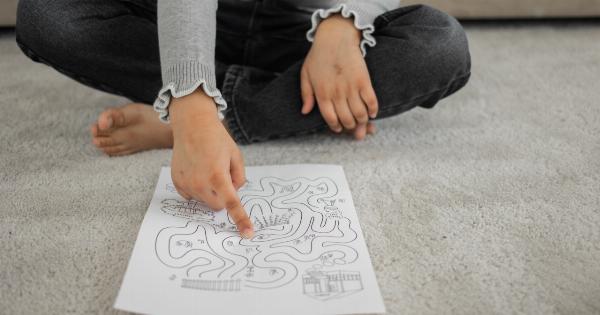The teenage years are a period of rapid cognitive and emotional development. During this time, adolescents develop a heightened sense of self-awareness and consciousness, which shapes their thoughts, feelings, and behaviors.
Consciousness, the state of being aware of one’s surroundings, thoughts, and emotions, plays a critical role in adolescent development.
The Development of Consciousness in Adolescents
Consciousness develops gradually over the course of childhood and adolescence. In early childhood, children are mainly focused on their immediate sensory experiences and have limited awareness of themselves and others.
As they grow older, they begin to develop a more complex self-concept and become increasingly aware of their own thoughts, feelings, and motivations.
Adolescence marks a significant stage in the development of consciousness as teenagers become more introspective and reflective. They begin to think more abstractly and make connections between their thoughts and emotions.
This process helps them develop a stronger sense of identity and understand the complex social world around them.
The Importance of Consciousness in Adolescent Development
Consciousness is critical to adolescent development because it helps young people make sense of their experiences and emotions. By being aware of their thoughts and feelings, teenagers can regulate their behavior and make better decisions.
This self-awareness also helps them develop empathy and understand the experiences of others, which is critical for forming healthy relationships.
Research has shown that consciousness is linked to many positive outcomes in adolescence, such as increased emotional well-being, better problem-solving skills, and improved academic performance.
Adolescents with high levels of consciousness also tend to have better relationships with their peers and parents, and are less likely to engage in risky behavior such as drug or alcohol use.
Challenges to Developing Consciousness in Adolescence
Despite the many benefits of consciousness, developing self-awareness and introspection is not always easy for adolescents. Many factors can make it difficult for teenagers to become more conscious, including:.
Social Pressures
Adolescent culture places a strong emphasis on social status and fitting in with peers. In some cases, this can lead young people to prioritize external validation over self-awareness.
Teens may be reluctant to explore their own thoughts and emotions if they feel that doing so goes against the norms of their social group.
Stigma Around Mental Health
There is still a strong cultural stigma associated with mental health issues, which can make it difficult for young people to seek help or talk openly about their emotions.
Adolescents may be reluctant to explore their thoughts and feelings if they fear being labeled as “crazy” or “weak.”.
Distracting Technology
The proliferation of smartphones and social media has made it easier than ever to distract ourselves from our inner experiences.
Teens may spend hours each day scrolling through Instagram or playing video games, which can make it difficult to develop the concentration and self-awareness necessary for consciousness.
Ways to Promote Consciousness in Adolescents
Despite the challenges, there are many ways that parents, educators, and mental health professionals can help promote consciousness in adolescence. Here are a few strategies that may be effective:.
Mindfulness Practices
Mindfulness, the practice of paying attention to the present moment without judgment, has been shown to be effective in reducing stress and promoting emotional well-being in adolescents.
Mindfulness practices such as meditation or yoga can help teens develop greater self-awareness and learn to regulate their emotions effectively.
Psychotherapy
Talk therapy can be an effective way for adolescents to explore their thoughts and emotions in a safe, supportive environment.
A trained mental health professional can help teens identify and manage underlying issues such as anxiety or depression, which can interfere with consciousness.
Parental Support
Parents can play a critical role in helping their teens develop consciousness by providing emotional support, encouraging open communication, and modeling self-awareness themselves.
Parents who prioritize their own mindfulness practices and strive to create a supportive, non-judgmental home environment can help their teens feel more comfortable exploring their inner experiences.
Conclusion
Consciousness is a critical aspect of adolescent development, allowing young people to make sense of their thoughts and emotions and develop a greater sense of self-awareness and empathy.
However, many factors can make it difficult for young people to become more conscious, including social pressures, mental health stigma, and distracting technology. By promoting mindfulness practices, talk therapy, and parental support, we can help young people develop the consciousness necessary for healthy emotional and social development.






























